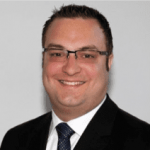Interview with Dr Stefan Walzer

Dr. Stefan Walzer has more than 14 years of experience in payer strategy, pricing, health economics and reimbursement submissions in Austria, Germany and Switzerland. Among other influencial positions, Stefan was the Global Payer Strategy Leader for various products of F. Hoffmann – La Roche AG. Stefan chairs the committee “Inpatient care” of the German Health Economic Association (DGGÖ). He founded MArS in 2012, a partner of the European Consultancy Group, Medvance.
1. What are the key success factors that enable such a fast market access in Germany? How German pharmaceutical companies see market access in France?
S.W : “The actual delay between availability on the German market, which means the registration into the price database, and the payment within the system is 0 days. The only delay, usually estimated around 99 days, is the difference between the EU marketing authorization and the time until a company submits their price into the database. Hence the delay is totally dependent on the pharmaceutical company itself. This can have various reasons. Some companies are not prepared for the launch at the time of EU approval and some decide strategically to maybe launch later. France is seen as a similar market to Germany, with different process. Health politicians sometimes even would like to go further in the direction of France in order to be even more aggressive on the pricing and potentially also reach volume-based agreements in the future, which are currently hard to be implemented with our over 130 health insurances in Germany.”
2. What are the main market access issues in Germany the pharmaceutical companies are faced with?
S.W : “The core issue currently is still the sometimes too stringent applicability of the AMNOG process*. For some therapies, the process does not even fit at all. Then, others sometimes still struggle with the comparator(s) chosen by the G-BA*, which obviously drive the comparison and hence the added benefit. Finally, there are still discussions on the clinical endpoints and the definition when such endpoints are patient-relevant. For example, an HbA1c – glycated hemoglobin- improvement is not patient-relevant for the G-BA as this would be a surrogate for other complications such as strokes, heart failures, etc. Such mistakes or misunderstandings could be avoided if companies would consult the G-BA before initiating their phase III programs. However, in terms of market access regulation in Germany, there is no big changes expected by the end of the year. The new Minister of Health does not want to change a lot in this respect, focusing more on the shortage of physicians and nurses.”
3. What are the main mistakes to avoid for industrials players in market access processes in Germany ?
S.W. : “First, to me, the most important step is the early consultation to correctly design the clinical study including endpoints, comparators, subgroups, … This should also be done if the data are already available in order to optimally develop the submission package. Once the submission dossier is ready, it is a must to go through the completeness check with the G-BA. However, if a dossier would not be complete this would mean there is no added benefit with negative consequences on the pricing. Moreover, an early buy-in of clinicians is of utmost importance as those would also need to support the case through their demand and also in the oral hearing. Finally, also important is a structured preparation for the oral hearing and obviously for the price negotiation of the company!”
4. Which actions would you develop to help international company to overcome the issues they are faced with in terms of market access facilities?
S.W : “With the development of Medvance, a European Consultancy Group, we understand all the core markets in Europe from the very bottom of local health politicians and physicians, up to the top of the Ministry of Health and other decision makers. We get a global vision of market access in Europe and provide support for European market access in the healthcare sector. We all have the connections to all relevant stakeholders in the system while also having the capabilities and experience developing an optimized outcome in the submission and negotiations. Companies could benefit from scale effects as we truly work together. We are large but with our structure we have kept the small units to truly support our clients in the way they would like to have it.”
*Arzneimittelmarkt-Neuordnungsgesetz in Germany corresponds to the Pharmaceuticals Market Reorganisation Act
*Gemeinsamer Bundesausschuss is the German organization in charge of the evaluation in the European network EUnetHTA
*Interview done by Lucile Lecomte